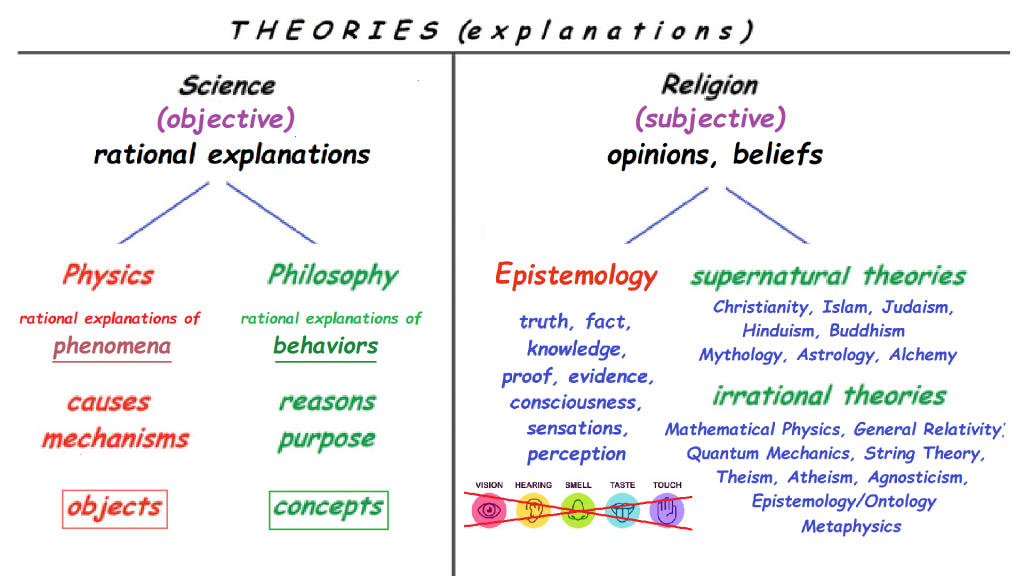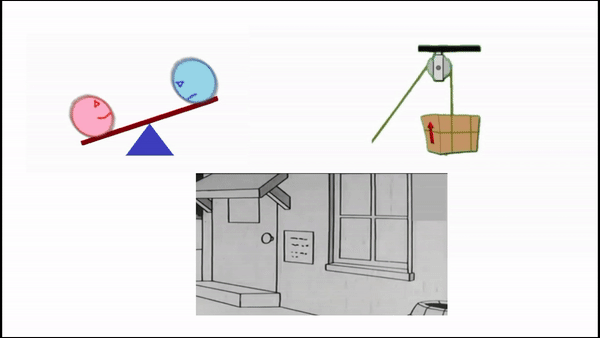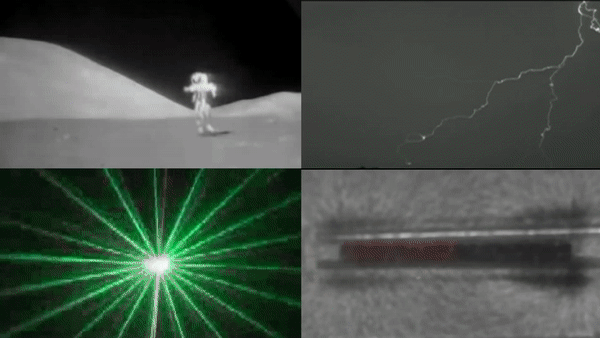Physics is one of the two branches of Science, the other being Philosophy. Physics deals with objects and explains causes and mechanisms. Philosophy deals with concepts and explains reasons and purpose.
What Physics (or Science, for that matter) does not do is describe. Physics explains. And what it explains is mechanisms. Physics attempts to explain how the magician did the trick rather than describe what he did (e.g., how many strokes of the saw it took to cut the lady in half, how many seconds went by, how many pieces of the lady resulted after cutting, etc.).
Therefore, where Physics parts company with the so-called ‘scientific method’ widely used since the 17th Century is that it has no use for observers (i.e., testimony, witnesses). The five senses — see, touch, taste, smell, hearing — are outlawed. Physics uses a single sense: common sense. The entity is the brain. The process is alternatively known as mind, thought, reasoning.

Physics is the Science of Existence
The non-negotiable Golden Principle of Physics states:
“Physics requires an object; you can’t explain a mechanism without an object.”
What would there be to study if there were no objects in the Universe? What phenomenon would be happening? What would there be to observe or do experiments with?
Therefore, the first lesson that a physicist learns is the meaning of the word object. The Golden Principle summarily dismisses any individual who cannot define the word object in a rational manner or use it consistently in a dissertation. That individual is not a physicist. A physicist is essentially a ‘theorist of mechanisms’.
Physics only explains phenomena related to objects that exist. Physics does not deal with objects that don’t exist (e.g., tribar, circle, square, Pegasus, Zeus, Superman, Bugs Bunny). Physics is that branch of Science that deals with existence. Anyone proposing that a given object exists and causes phenomena in the real world has knowingly or unwittingly crossed the line into Physics. Therefore, another sine qua non word that a physicist is required to define is exist. We can thus say that a physicist is also a ‘theorist of existence’.
What does a physicist do?
A physicist is tasked with explaining phenomena such as why (by means of what invisible mediator) a magnet attracts another from a distance or what causes a pen to fall to the floor rather than to the ceiling. These are phenomena that a physicist learns to explain in the first week of classes. He who cannot explain in a rational manner the mechanism of gravity is not a physicist and has not taken an introductory course in Physics. He has not gone through Physics Kindergarten.
A physicist also devises models that enables visualization of the workings of the atomic as well as the cosmic world. The theories proposed must follow from these models.
The Language of Physics
The Golden Principle of Physics renders objects indispensable. An object is that which has shape and, therefore, a theorist has no excuse to avoid illustrating the actors that participate in an explanation of the causes and mechanisms of a phenomenon. A theory is a movie of ‘how an event happened’. Each frame in this movie must have an image. The language of Physics is none other than illustration. Usually, the reason a theorist cannot illustrate his or her theory is that (s)he is confusing a concept for an object.
The Universal Movie

We have figured out how to explain the visible phenomena: how a seesaw works, how a pulley lifted a box, how the window broke…

What no theorist today has been able to figure out are the phenomena mediated by invisible agents: gravity, electricity, light, and magnetism.
